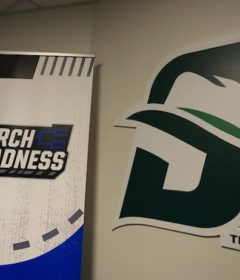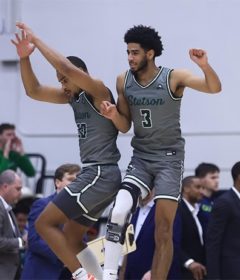Finding My Voice in Argentina
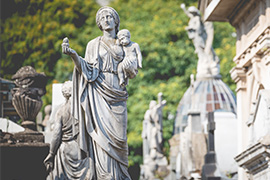

Going from citizen to foreigner changes more than perspective. My first taxi drive through Buenos Aires, Argentina, brought me to a new existence. Buildings were pushed up against one another. People walked despite it being five in the morning. It was cold, and rainy, and the silent taxi driver left me feeling insignificant. I was in a different world where my name meant nothing, where I had no history, prominence or weight.
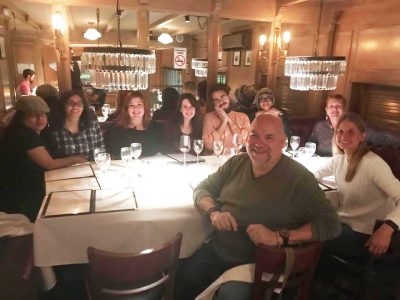
I got to experience that same epiphany each day I stepped on the balcony of our hotel in Recoleta, a suburb of Buenos Aires. From the sprawling mausoleums of the cemetery that backed up to our hotel to the distant view of the ocean over piles of buildings, it was clear that I was about as memorable as a pigeon to those in the city.
That is the power in leaving the U.S.: the chance to be anyone and no one at the same time. Going to Argentina with Stetson’s MFA of the Americas writing program should feel like school, but it feels like a personal challenge. It’s 10 days to do as much living as I can before returning to “the real world.” It’s too short a time to fully disconnect, but just enough time to get to explore a different version of who I want to be.
There’s power in the transient nature of being a tourist. As fellow student Steven Dunn told me on our last day, “I was able to imagine myself as more than a writer and imagine my writing as more than words.”
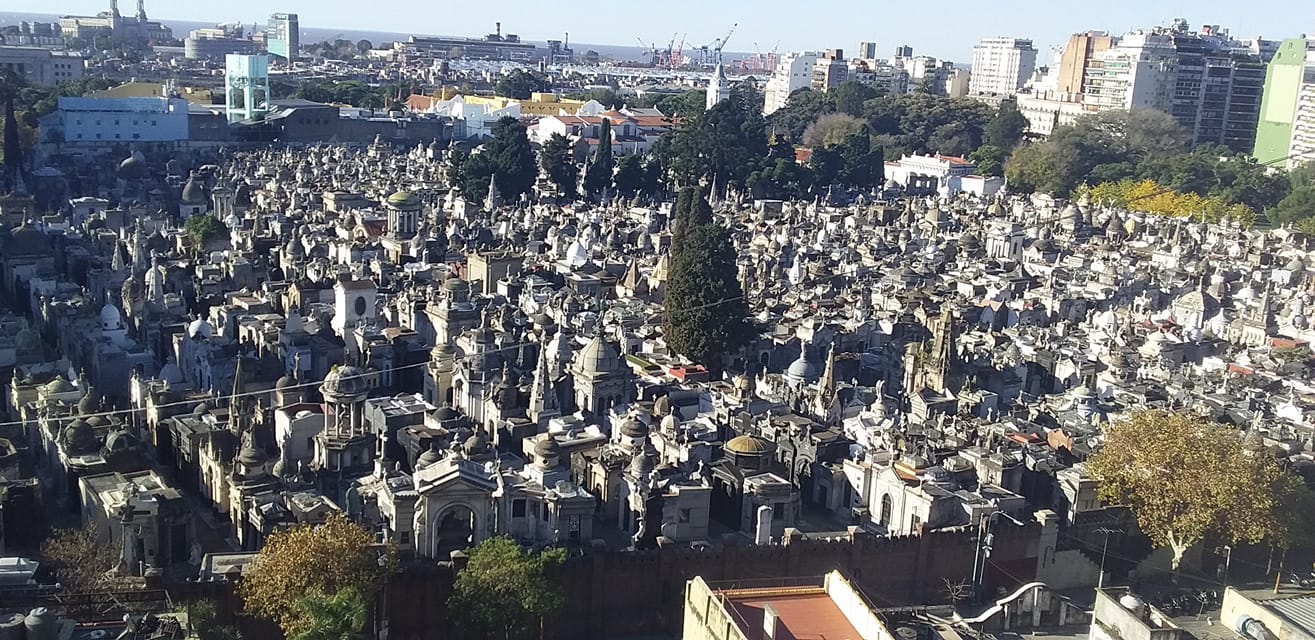
Writing in another country comes with a different comfort zone as well. I felt like my voice was more accessible – maybe because I was speaking less English, or maybe because when I did speak it was to strangers. I could be more vulnerable – and I was in both my writing and the way I interacted with others. The version of myself in Argentina could handle the words pouring out of me because the stories happened thousands of miles away.
That’s why the option to travel with this MFA program was my biggest consideration while deciding which program to dive into. The guided adventures into Argentina’s history and the country’s writers helped to ground me in Buenos Aires. The workshops helped keep me focused on writing and gave me a lens to view my experiences. Once the workshops, lectures and scheduled adventures concluded, we were given freedom to explore and do whatever we pleased.
It balanced my experience well. When I strayed too far, got stuck only speaking and writing Spanish, or got wrapped up in messages from home, a workshop would remind me that I was here to write. When writing took over and I had crumpled drafts filling the desk in the hotel room, I’d be invited to go out and exist in the city. No pile of rough drafts seemed insurmountable when I walked on the thin roads between skyscrapers. The constant shifts kept me on my toes, never complacent and never set in my ways.
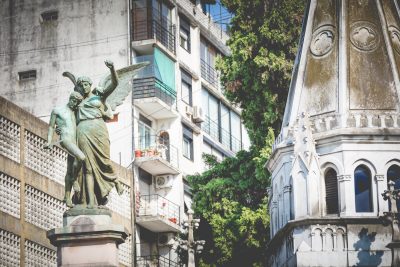
While in Argentina, I crossed genres to poetry – despite being in the prose track – and screenwriting, then film, and had to figure out how to put all of that into a cohesive piece. Other students brought Argentina into their pieces as well. At the final student reading, we had performances with guitars, with opera, with images of architecture and streets of Recoleta. After the final reading, instead of heading right to the final dinner, all eighteen students and seven faculty stayed after the reading to speak to others about their pieces – the inspiration and the performances.
One student felt she could share her own memoir with our small group for the same reason I shared my story: we weren’t at home. We knew our classmates, of course, but the bond created by being a relatively small pack of acquaintances in a place foreign to almost all of us made it possible to be more intimate with our writing and less afraid of the consequences of sharing our personal struggles.
For me, that’s a unique writing experience. I took a number of writing classes while an undergraduate at Stetson and I never reached the self-awareness I gained in this program for the sole reason that I never had to reconsider my identity. We’re forced to do that when we leave the country and trade in what we know for a different language, city and culture.
The best way to describe the program’s residencies outside the country was said to me by June graduate Nina Siso: “You will be pushed, challenged and put under pressure, but all to be shaped into the artist you’re supposed to be.”
–Carley Fockler ’15, English, is a graduate student in Stetson’s M.F.A. of the Americas Creative Writing Program.

